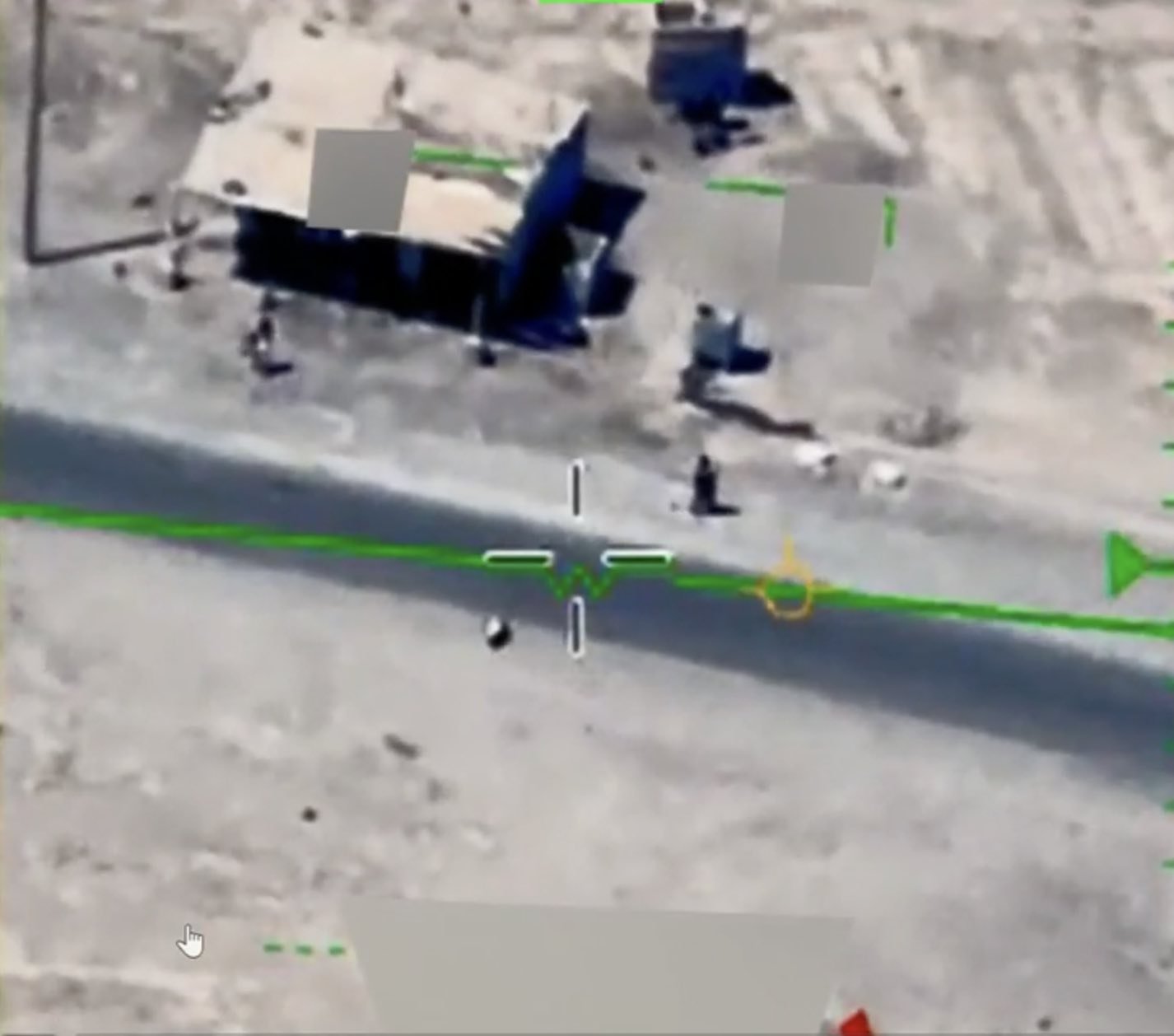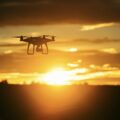

Welcome to this week’s installment of The Intelligence Brief… the results of a recent survey are in, and they are casting a bleak picture of American attitudes when it comes to potential doomsday scenarios for the immediate future. In our analysis, we’ll be looking at 1) why Americans have doomsday on their minds, 2) what the percentages indicate, 3) why doomsday thinking has become a bipartisan issue, and 4) the safest states to reside if you’re one of the millions of worried Americans right now.
Quote of the Week
“Don’t worry about saving the earth. The earth will be fine. However, humans will probably become extinct and no longer habitate the earth. Which is probably a good thing.”
― Blake Newman
Latest News: In recent coverage from The Debrief, researchers have developed a microscopic sensor the size of a single molecule, which is 500,000 times smaller than a human hair… and wait until you see what it can do. Elsewhere, new images of the Orion Nebula captured by the James Webb Space Telescope have revealed the existence of 150 free-floating objects once considered a scientific impossibility. Be sure to check out all our latest headlines at the end of this week’s Intelligence Brief newsletter.
Podcasts: In podcasts from The Debrief, over on The Micah Hanks Program, the latest of a series of ongoing disclosures involving mysterious sightings logged by government agencies has revealed UAP observations at several U.S. Department of Energy facilities. Meanwhile, The Debrief Weekly Report and hosts MJ and Stephanie will soon be returning from a brief summer hiatus next week, and in the meantime, you can subscribe to all of The Debrief’s podcasts, including audio editions of Rebelliously Curious, by heading over to our Podcasts Page.
Video News: Premiering this Friday on Rebelliously Curious, Chrissy Newton is joined by Larry Hancock of the Scientific Coalition for UAP Studies for a discussion about UAP sightings during the Cold War around American atomic warfare complex sites. Also, check out the latest episode of Ask Dr. Chance where Dr. Glenn answers questions about climate change. You can get other great content from The Debrief on our official YouTube Channel.
With all the housekeeping out of the way, it’s time to take a look at why so many Americans are concerned right now about doomsday… and where the safest places are to go in the event of an apocalyptic event.
Americans Have Doomsday on Their Minds
Americans appear to have very little faith in the country’s leadership, according to a recent survey that found most people don’t think they could be saved from a doomsday event if one were to occur.
The somber findings were the results of a survey conducted by BonusFinder.com, a site described as a “user-driven and independent casino review portal.” Despite the site’s narrow focus, its survey offers some interesting glimpses at where Americans’ minds are currently in terms of 21st-century existential concerns.
Fundamentally, the recent survey reports that 71.2 percent of Americans have no faith in the capabilities of the U.S. government to protect against an end-of-the-world event such as a nuclear war or other potential threat that could severely impact life on Earth.


The survey’s results come amidst controversies among American leadership that include the recent ousting of the Speaker of the House, a worsening American economy, and other uncertainties in advance of what is likely to be a contentious 2024 election year.
Such worries, paired with the ongoing tensions resulting from Russia’s invasion of Ukraine and issues occurring elsewhere around the world, provide a rather bleak forecast in terms of people’s outlook on what the future may hold, with many raising concerns that a potential doomsday scenario might occur far sooner than many would hope or expect.
Disaster by Numbers
According to the recent survey, well over half of Americans (55.8%) are worried about climate change, expressing that some form of natural disaster could spell doom not just for the U.S. but people around the world.
Although smaller in number, a significant percentage of those surveyed—close to a third—say they are worried about the potential that another virus similar to the coronavirus that swept the world beginning in late 2019 could emerge.
An even smaller percentage, close to a quarter of those surveyed, expressed concerns that the Western nations may enter a third world war with countries like China and Russia, while seven percent of respondents said that earthly concerns aren’t at the top of their list, but instead worry that recent data being collected about unidentified anomalous phenomena, or UAP, could point to a pending invasion by extraterrestrials.


Fortunately, the DoD’s All-domain Anomaly Resolution Office maintains its position that there is no concrete evidence linking UAP sightings to extraterrestrial technologies, despite recent whistleblower assertions that allege Earth has been host to visits from non-human intelligence, claims which became the focus of an Intelligence Community Inspector General investigation first reported by The Debrief in June.
Equal in number to Americans worried about alien invasion are those who worry about a zombie apocalypse, mirroring themes that have remained prevalent in science fiction portrayals like The Last of Us and The Walking Dead.
Bipartisan Agreement on Lack of Trust
Arguably, among the most telling findings in the recent survey had been that more than four out of five respondents (82%) in Arizona, a swing state, conveyed a fundamental lack of trust for the American government. More than half that number of Arizonans say they have stockpiled supplies in preparation for the onset of any potential disaster.
Other states displaying the lowest amount of faith in the U.S. government saw close ties between Alabama and Kansas at 78%, followed by Pennsylvania (77%) and Oregon (76%).
Factors cited by respondents as having influenced their attitudes include information they view on the news, as well as social media, popular films, and general concerns about family life. It also seems that Americans participating in the survey aren’t the only ones whose concerns are revealing uncertainty about our future.
Where to Live If You Want to Survive Doomsday
Of all the American states where respondents expressed confidence about their survival abilities, 64.86 of Nebraskans said they believed they could withstand the challenges presented by a doomsday scenario.
51.35% of respondents in Nebraska also said they have already begun preparations for a doomsday scenario. Other states with high numbers of residents who say they are preparing for potential future dangers are New Mexico and Montana, while states like Idaho and Oklahoma seemed to display less concern, with fewer than 30% of respondents engaging in such preparations.


Whether or not the concerns Americans are expressing are entirely warranted or not remains somewhat in question, although the new data does provide a glimpse at the bipartisan nature of people’s worries… in the event that disaster were to really unfold, the recent survey’s results might also point to what regions throughout the U.S. will be the best place to hunker down and take shelter.
That concludes this week’s installment of The Intelligence Brief. You can read past editions of The Intelligence Brief at our website, or if you found this installment online, don’t forget to subscribe and get future email editions from us here. Also, if you have a tip or other information you’d like to send along directly to me, you can email me at micah [@] thedebrief [dot] org, or Tweet at me @MicahHanks.


Here are the top stories we’re covering right now…
- An Oddly Bright Object Can Now Be Seen Moving Through the Night Sky. Here’s Why It Has Astronomers Worried.
Have you seen an unusually bright object moving through the evening sky recently? So have astronomers, and it has them worried.
- U.S. Cracks Down on Major Satellite TV Provider in First-of-a-Kind Space Debris Enforcement Action
The FCC has fined Dish Network $150,000 for failing to deorbit its EchoStar-7 satellite properly, resulting in a landmark move in the protection against potentially hazardous space debris.
- Air Force Research Lab Takes Giant Leap Into the New Space Age With Plans for Nuclear-Powered Spacecraft Systems
In a bold move that echoes ambitions from the earliest days of space exploration, the U.S. Air Force Research Laboratory (AFRL) is revisiting the concept of nuclear-powered spacecraft.
- The Department of Energy Has Created Ultra-Pure Materials to Investigate the Origin of Matter in the Universe
The Department of Energy has helped to create ultra-pure materials that will help in the search for neutrinos and dark matter.
- Something Odd Was Just Seen Crossing the Martian Landscape, and NASA’s Perseverance Rover Caught It All on Film
Newly released images captured by NASA’s Perseverance rover showcase a rare natural event moving across the Martian landscape.
- Secret of the Altar Stone: Stonehenge Mystery Deepens as New Discovery Upends Century-Old Theory
A team of researchers thinks they may have revealed new clues to one of the longest-kept secrets of England’s enigmatic Stonehenge.
- ‘Game Changing’ Microscopic Sensor 500k Times Smaller Than a Human Hair is the Size of a Single Molecule
Researchers have developed a microscopic sensor the size of a single molecule, which is 500,000 times smaller than a human hair.
- Mining the Deep: Deep-Sea Metals Extraction Is Driving Innovative Tech, But Poses Potential Problems Too
Responsible deep-sea mining is possible with comprehensive safeguards and regulations in place. If done effectively, green tech may be able to flourish in the years ahead.
- James Webb Space Telescope Has Spotted Something Lurking in the Orion Nebula That “Shouldn’t Exist,” and They Come in Pairs
New images of the Orion Nebula captured by the James Webb Space Telescope have revealed the existence of 150 free-floating objects once considered a scientific impossibility.
- Into the Dreamscape: Scientists Discover How Vivid Dreams That Inspire Feelings of Awe Spill Over into Real Life
Researchers from the University of Notre Dame have found that potent dreams which inspire feelings of greater connectedness and awe often directly influence the resilience and productivity of full-time workers.
- Hacker Group Takes British Royal Family Website Down Amidst Inflammatory Statements by Russian Officials
A pro-Russian hacker group has claimed responsibility for taking the official website of the British Royal Family offline for a short period over the weekend amidst aggressive rhetoric from the former Russian president over Britain’s support of Ukraine.
- Opinion: How Private Aviation Offers Practical Solutions For Technology and Business
From time efficiency to better overall health and safety, the benefits of private jet travel for technology business purposes go beyond luxury.
- U.S. Department of Energy UAP Documents Reveal Puzzling Aerial Incursions Near American Nuclear Sites
Documents released by the U.S. Department of Energy (DOE) reveal new details involving unauthorized drones incidents and UAP sightings.
- Industry 4.0 Metaverse Unlocked: How VR, AR, AI and 3D Technology Are Powering The Next Industrial Revolution
Immersive mixed reality can take us to digital places unlike anything in the real world, and it could power the next industrial revolution.
- Government Shutdown: How It Could Affect the Military and U.S. National Security
This week, the Pentagon has voiced concern over the potential for a U.S. government shutdown.
- The Case of the White Pine Triangle
This week on The Micah Hanks Program, we interview a witness to the appearance of a large, triangular UFO over Canada.
- Einstein Was Right: Antimatter Reacts to Gravity Before Catastrophic Self-Annihilation
Researchers at the CERN laboratory in Switzerland have shown that gravity directly affects antimatter, once again proving Einstein to have been correct in his predictions.
- James Webb Space Telescope is Peering Back in Time and Upending Our Understanding of the Universe
The James Webb Space Telescope is changing astronomy, capturing stunning images of distant cosmic phenomena.
- This Game-Changing Lightweight Exosuit Will Let You Outrun the Fastest Human
Researchers have developed a lightweight exosuit that enhances a human’s natural ability to sprint, making people run faster.
